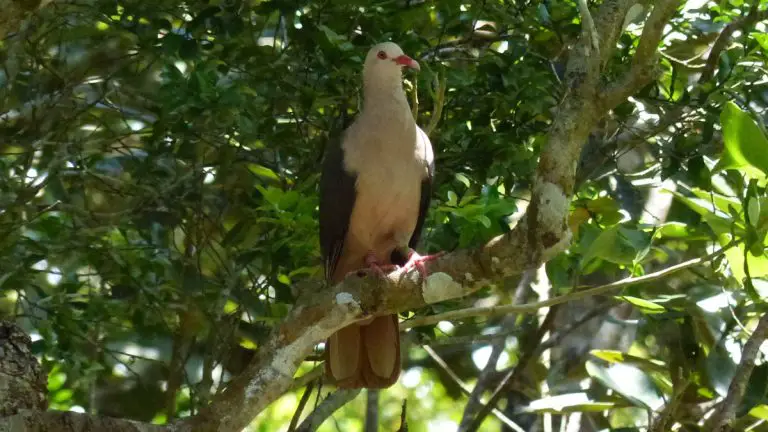Pigeon Milk: Understanding Its Role in Chick Growth and Survival
Pigeon milk, or crop milk, is a secretion produced by pigeon breeding pairs, i.e., male and female pigeons. This milk is critical for the growth and survival of pigeon chicks, as it contains essential nutrients and proteins for their development.
Pigeon milk contains more protein than cow’s milk and is nutritionally comparable to human breast milk. Understanding the critical role of pigeon milk in chick growth and survival is fascinating. It demonstrates birds’ incredible adaptability to meet the nutritional needs of their young.
In this article, we will delve into the world of pigeon milk, exploring what it is, how it is produced, and why it is essential for chick survival and growth. By the end of this article, you will have a deeper understanding of this fascinating substance and its critical role in the lives of pigeons.
Composition And Function Of Pigeon Milk
Pigeon milk is a fascinating aspect of bird physiology that plays a critical role in the growth and survival of pigeon chicks. It is a whitish, creamy substance secreted by the lining of the crop in adult pigeons. It is not technically milk, but because of its appearance and function, it is commonly referred to as such.
This is known as avian lactation or crop milk production, and it helps with avian development and growth. The hormone prolactin regulates the production of this crop milk.
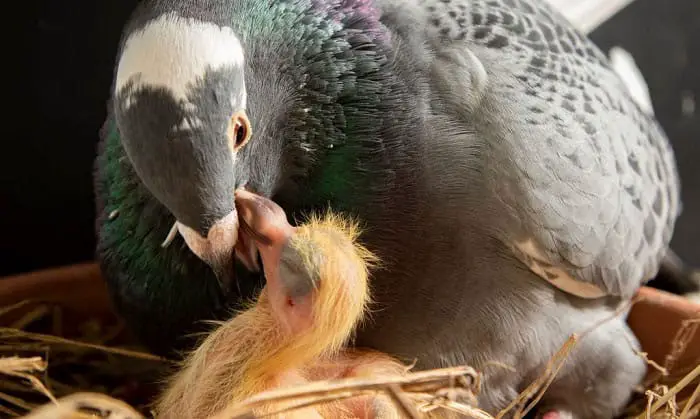
Pigeon milk composition is 60% of protein, 30% of fat, and other essential nutrients such as minerals, antibodies, and various non-pathogenic bacteria. The protein in pigeon milk is called casein, a slow-digesting protein that provides sustained energy to the chick.
Functions of Pigeon Milk
- Fat in pigeon milk is essential for developing the chick’s nervous system and brain. It is mainly composed of lipids, which are broken down into fatty acids to provide energy to the chick.
- Another pigeon milk function is the development of the chick’s bones. The calcium in pigeon milk is responsible for bone development. Calcium absorption in birds is different from that in mammals.
- While mammals absorb calcium from their food through their small intestines, birds absorb it through a specialized organ known as the gizzard. The calcium is then transported to the bones and other tissues, where it is used for growth and repair.
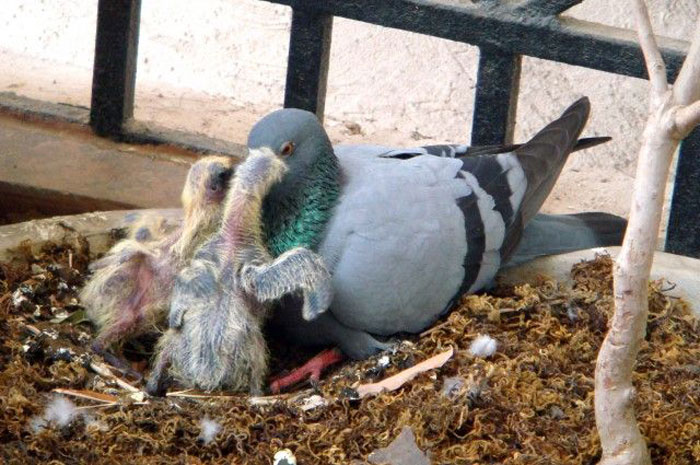
- Pigeon milk is also crucial for forming the chick’s immune system. The lysozyme present in pigeon milk helps to protect the chick from infections and diseases.
- It also stimulates the production of white blood cells essential for the chick’s immune system.
- Pigeon milk also plays a role in developing the chick’s digestive system. The crop, where pigeon milk is produced, is a pouch-like organ in the bird’s digestive system that stores and moistens food.
- The crop is also responsible for breaking down food into smaller particles, which makes it easier for the chick to digest.
- The production of pigeon milk in the crop provides a constant supply of food to the chick, which is essential for nestling development.
Unique Properties Of Pigeon Milk Compared To Mammalian Milk
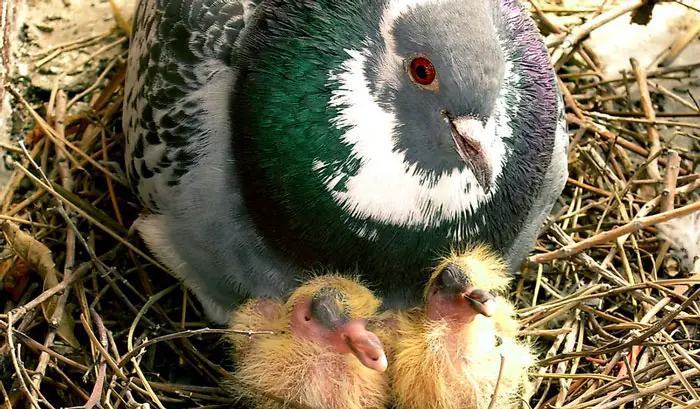
Pigeon milk is different from mammalian milk in several ways.
- Unlike mammalian milk, pigeon milk is not produced in mammary glands but is instead a result of protein synthesis by the cells lining the crop. Also, the parents regurgitate the milk and feed it directly to their chicks rather than secreting it through teats.
- Pigeon milk is also higher in protein and lower in carbohydrates than mammalian milk. The protein in pigeon milk primarily comprises casein, while the protein in mammalian milk mainly comprises whey.
- Pigeon milk also contains a different type of protein called “immune milk” or “IgY.” This protein is crucial in protecting the chick from infections and diseases, as it is transferred from the parent’s immune system to the chick through the milk.
- Pigeon milk is produced by male and female parent pigeons, whereas mammalian milk is produced exclusively by female mammals.
Pigeon Milk Synthesis And Delivery
Both parent birds produce pigeon milk in their crops-specialized pouches in their digestive systems. The production process begins with the parents ingesting food, which is then stored in the crop.
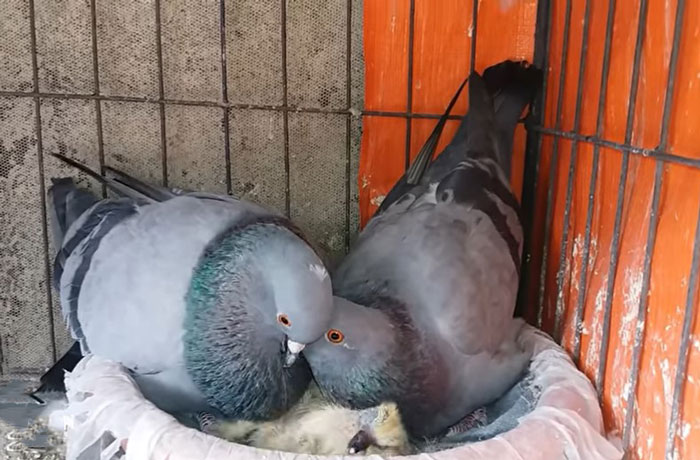
The crop lining is rich in secretory cells that produce a milky substance called “crop milk.” This milk is then regurgitated by the parents and fed directly to the chicks.
Regulation of pigeon milk production and the factors that influence
The regulation of pigeon milk production is a complex process influenced by several factors, such as the prolactin hormone. Also, bird behavior plays a crucial role in the production and delivery of pigeon milk.
- Pigeons have a highly developed social structure and are monogamous breeders—the male and female work together to build a nest and incubate the eggs. Once the chicks hatch, the parents feed and care for them.
- Pigeon milk production is triggered by the presence of the chicks, which stimulate the production of hormones that cause the parents to produce the milk.
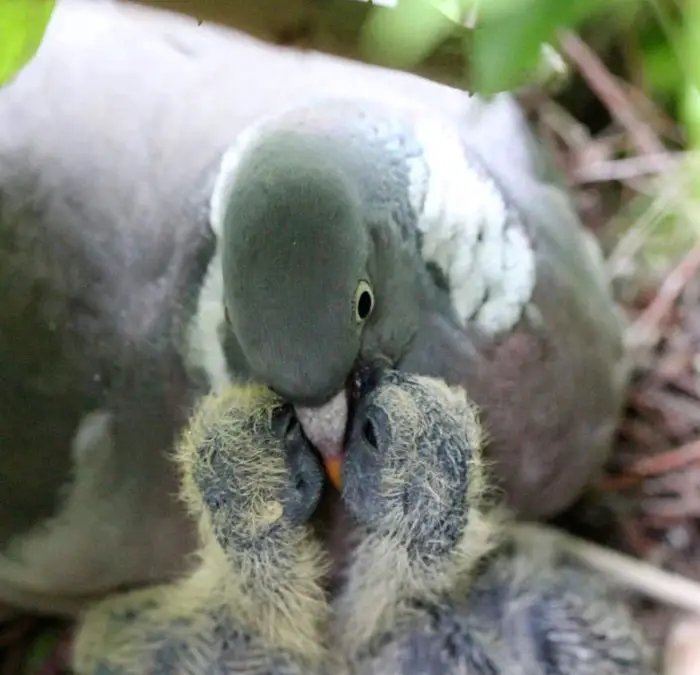
The parents then regurgitate the milk into the mouths of the chicks, who can digest it through a specialized mechanism known as the “milk gland.”
- The amount of food available to the breeding pair also affects milk production. Pigeons with access to a greater quantity and variety of food are likely to produce more milk than those with limited food options.
- The production of pigeon milk is also affected by the needs of the chicks. So crop milk production is highest during the first week after hatching when the chicks require the most nourishment.
Pigeon milk delivery and production are linked to parental investment and breeding success
As the chicks grow, the composition of the crop milk changes to reflect their changing nutritional needs. Research has also shown that pigeon milk production is linked to parental investment and breeding success.
Pigeons that produce more milk have a higher breeding success rate, and their chicks have better survival rates. This suggests an intense selective pressure for pigeons to invest in high-quality crop milk production.
Interestingly, the production of crop milk is not unique to pigeons. Other birds produce crop milk, including flamingos, doves, and emperor penguins.
Chick Growth And Survival
As mentioned, pigeon milk is crucial in pigeon chick growth and survival. It is a rich source of nutrients and proteins essential for developing bone, muscle, and other tissues in growing chicks.
Pigeon milk contains a high concentration of calcium and phosphorus, essential for developing strong and healthy bones in young birds.
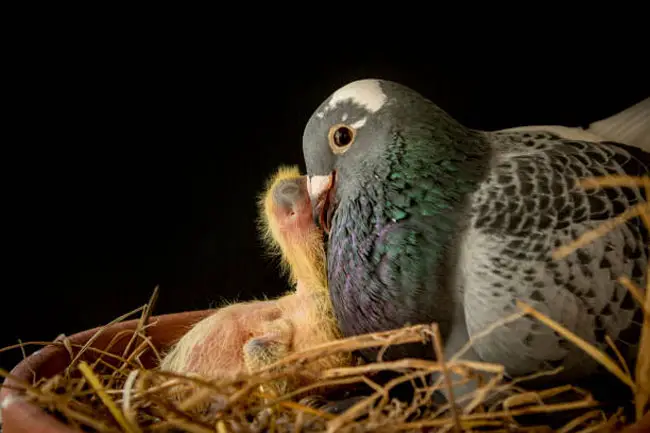
Additionally, pigeon milk also contains a variety of other nutrients, including proteins, vitamins, and minerals, that are important for the development of the immune system and overall health of the chicks.
Impact of pigeon milk availability on chick survival rates
The availability of pigeon milk can significantly impact the survival rates of pigeon chicks. Chicks with sufficient amounts of pigeon milk are more likely to survive adulthood and reproduce successfully.
Conversely, chicks deprived of pigeon milk or have limited access to it may suffer from growth delays, weakened immune systems, and other health problems that can ultimately lead to their death.
Potential long-term effects of pigeon milk availability
Furthermore, the availability of pigeon milk can have long-term effects on the health and success of pigeons. Chicks that receive optimal nutrition during their early development are more likely to grow into healthy and strong adults.
This, in turn, can have positive implications for breeding success and overall population health.
Applications For Avian Nutrition Research
Research on pigeon milk has significant applications in avian nutrition research, animal breeding practices, and understanding the role of parental care in avian reproduction.
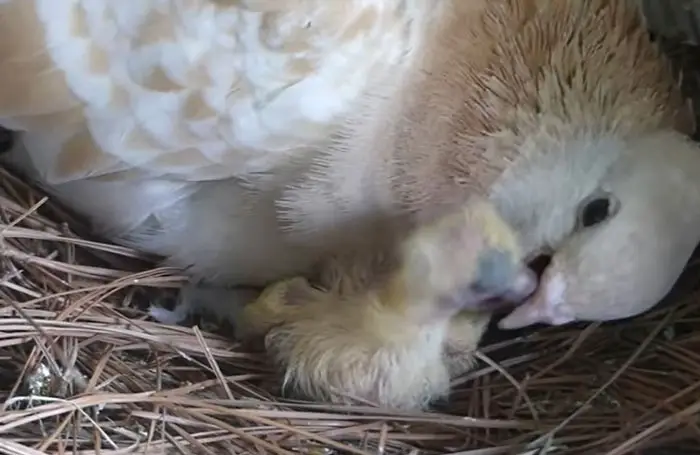
Avian lactation research has shown that pigeon milk is a highly complex and sophisticated substance that provides all the necessary nutrients for nestling development.
This research has informed the development of avian nutrition by identifying the specific nutritional requirements of different bird species. And it shows how these requirements can be met through diet.
Pigeon milk research in supporting the health and survival of other bird species
Pigeon milk research can support the health and survival of other bird species that rely on crop milk as their primary sources of nutrition, such as flamingos, doves, and parrots.
In addition, research on pigeon milk helps understand the role of parental investment in avian reproduction. It has been demonstrated that pigeon parents can modulate the nutritional content of their milk in response to environmental and social cues.
For instance, when food is scarce, pigeons produce milk with higher protein content to ensure the survival of their offspring.
Pigeon milk research in understanding the role of parental care in avian reproduction
Avian nutrition experts and bird research institutions can use this information to develop better animal nutrition plans and breeding practices. So this can support the health and well-being of bird species in captivity and the wild.
Research on pigeon milk can also inform the development of formulas for hand-rearing orphaned or abandoned chicks.
Pigeon milk is a fascinating aspect of pigeon biology and plays a crucial role in the growth and development of pigeon nestlings. Understanding pigeon nesting and breeding habits can provide further insights into the reproductive behaviors and strategies of these birds. Our article on pigeon nesting and breeding habits explores the intricate process of nest building, incubation, and parental care in pigeons. Additionally, considering the ethics of pigeon racing is important in discussing the overall impact and treatment of racing pigeons. Our article on the ethics of pigeon racing delves into the various perspectives surrounding this popular sport and raises important questions about the welfare of the birds involved. By exploring both pigeon nesting and breeding habits and the ethics of pigeon racing, you can gain a comprehensive understanding of the fascinating world of pigeons.Conclusion
Pigeon milk is essential for pigeon chick development and survival. Because of its distinct composition and function, it is a critical area of study in avian nutrition and parental care in pigeons.
Researchers can develop strategies to support the health and survival of wild birds by continuing to study the role of pigeon milk in chick growth and development.
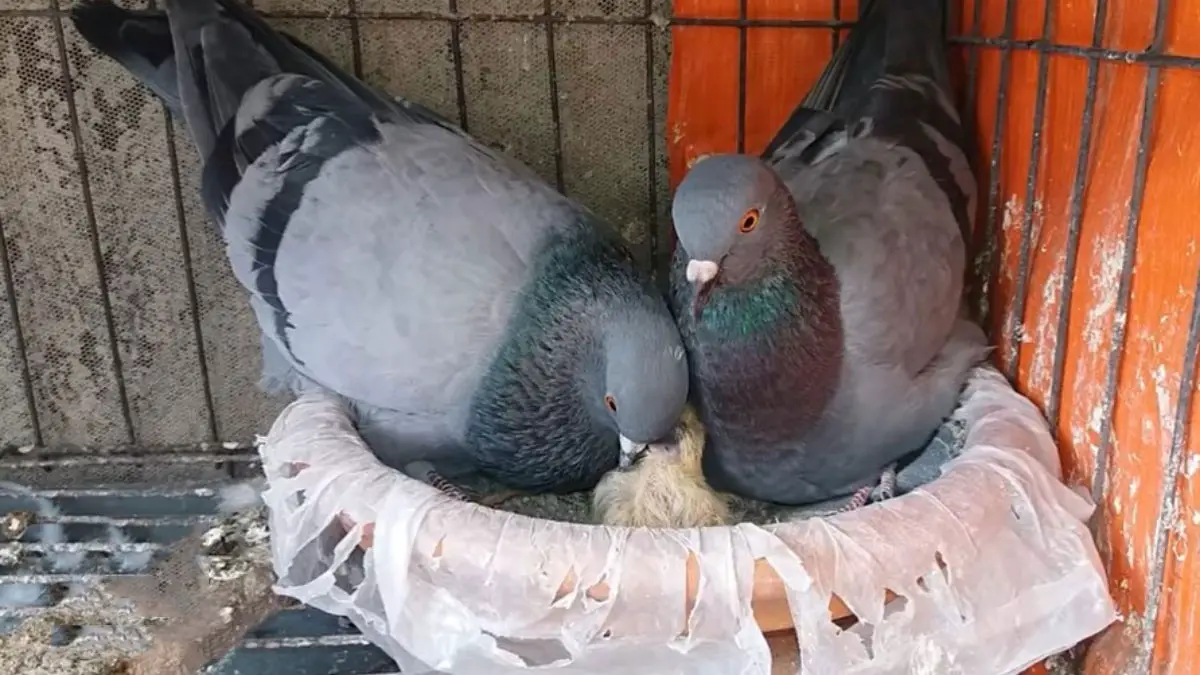
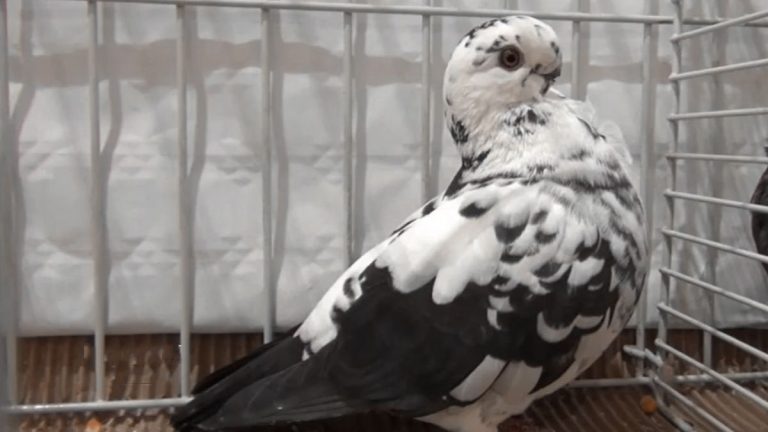
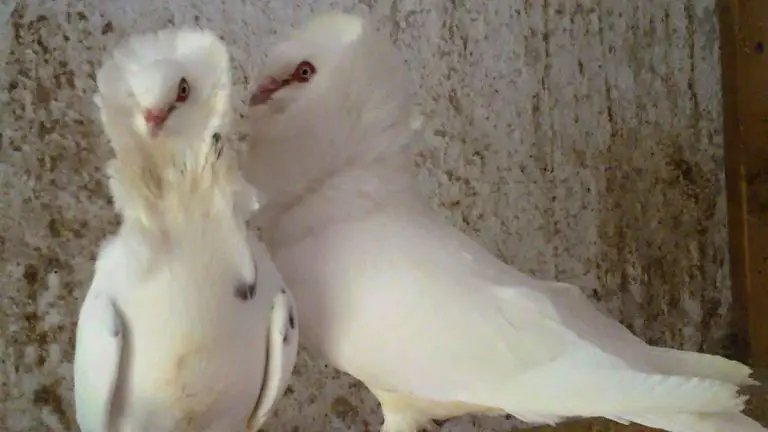
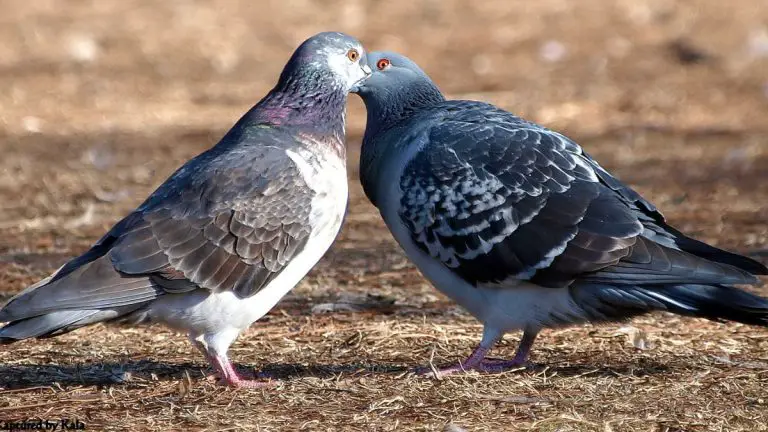
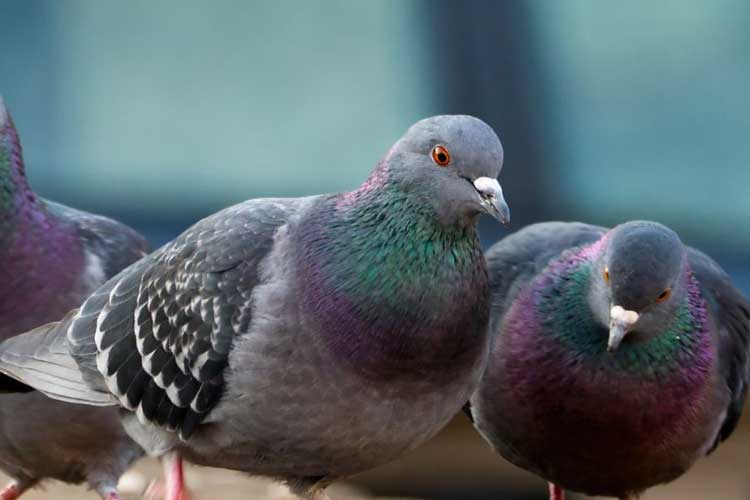
![Do Pigeons Eat Mice? [Everything You Need To Know]](https://avicultureblog.com/wp-content/uploads/2023/01/Do-Pigeons-Eat-Mice.jpg)
